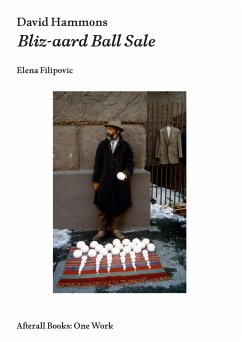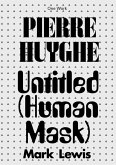One wintry day in 1983, alongside other street sellers in the East Village, David Hammons peddled snowballs of various sizes. He had neatly laid them out in graduated rows and spent the day acting as obliging salesman. He called the evanescent and unannounced street action Bliz-aard Ball Sale, thus inscribing it into a body of work that, from the late 1960s to the present, has used a lexicon of ephemeral actions and self-consciously "black" materials to comment on the nature of the artwork, the art world, and race in America. And although Bliz-aard Ball Sale has been frequently cited and is increasingly influential, it has long been known only through a mix of eyewitness rumors and a handful of photographs. Its details were as elusive as the artist himself; even its exact date was unrecorded. Like so much of the artist's work, it was conceived, it seems, to slip between our fingers—to trouble the grasp of the market, as much as of history and knowability.
In this engaging study, Elena Filipovic collects a vast oral history of the ephemeral action, uncovering rare images and documents, and giving us singular insight into an artist who made an art of making himself difficult to find. And through it, she reveals Bliz-aard Ball Sale to be the backbone of a radical artistic oeuvre that transforms such notions as "art,” "commodity,” "performance,” and even "race” into categories that shift and dissolve, much like slowly melting snowballs.
Dieser Download kann aus rechtlichen Gründen nur mit Rechnungsadresse in A, B, BG, CY, CZ, D, DK, EW, E, FIN, F, GR, HR, H, IRL, I, LT, L, LR, M, NL, PL, P, R, S, SLO, SK ausgeliefert werden.









